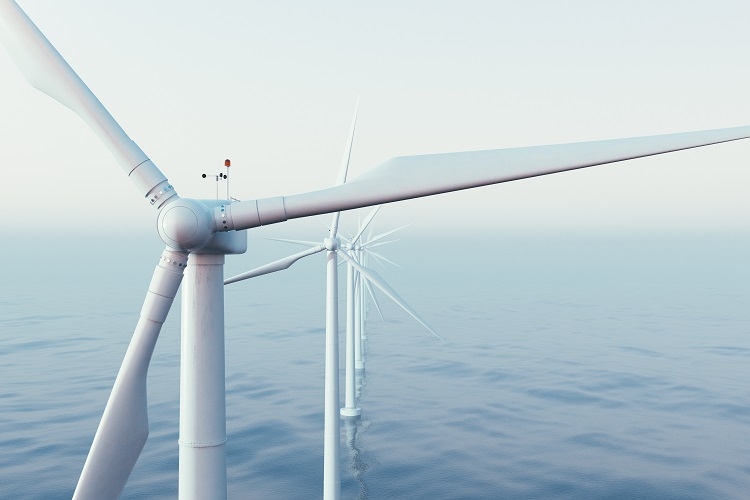Germans ramping up Vietnamese interest
 |
| Germans ramping up Vietnamese interest, photo: shutterstock |
It is expected that in December, Vietnam and Germany will conduct a large-scale meeting on discussing further bilateral ties in many sectors including renewable energy. After that, an inter-governmental agreement will likely be inked and more assistance for Vietnam will be decided on, also covering German financial and technical support for developing solar and wind power projects in the Southeast Asian nation.
“Climate change is a common challenge. Environmental protection and energy supply through increased expansion of renewable energies and increased energy efficiency are priority areas of German development policy commitment in Vietnam,” Sebastian Paust, first counsellor and head of Development Cooperation at the German Embassy to Vietnam, told VIR. “Renewable energy will become a big cooperation focus between Germany and Vietnam in the time to come, and the latest related agreement was reached by both sides in October 2019.”
Over the past few years Germany, which leads the world in renewable energy and especially wind and solar power, has bilaterally provided a sum of about €1 billion ($1.17 billion) in cooperation development for projects in Vietnam. This sum is earmarked both for already implemented projects in Vietnam, and for already committed projects here.
For instance, some €213 million ($249.9 million) was committed last year. The projects include technical and financial support.
In addition, multilaterally, Germany contributes about 30 per cent of the EU’s budget which is also used partly for supporting nations including Vietnam. The EU is also big cooperative partners of Vietnam.
“Thus, Germany is clearly a big development partner of Vietnam, and this will continue being expanded in the time to come,” Paust said.
Over past years, Vietnam and Germany have jointly implemented many energy-related projects. For example, they have since 2015 carried out the “Renewable Energy and Energy Efficiency (4E)” project, with the first phase worth €3 million ($3.5 million) from 2015-2018 and the second phase valued at €12.16 million ($14.24 million) during 2018-2021. The main objective of the 4E project is to further develop legal, regulatory, and institutional preconditions as well as related capacities to channel investment towards renewable energy and energy efficiency.
In another case, Vietnam and Germany have since 2017 been deploying the “Smart Grids for Renewable Energy and Energy Efficiency” project, which will end in June 2021.
This project is aimed to support the government in implementing its smart grid roadmap, which aims to promote the modernisation and automation of the national power transmission and distribution system.
Funded by the Federal Ministry of the Economic Cooperation and Development, the project is working closely with the Electricity Regulatory Authority of Vietnam to support experts of the Vietnamese power sector in developing a smart grid, meaning the digitalisation and flexibility of the power supply system, which allows integration of an increasing share of renewable energies and supports greater energy efficiency.
In addition, through the two countries’ energy development partnership, many German investors have been implementing projects in Vietnam. Recently, Vietnam’s Deputy Prime Minister Trinh Dinh Dung met with a number of German businesses who came to look for investment opportunities in renewable energy.
Anton Milner, managing director of IB Vogt, a German family-owned company providing high-quality turnkey solar power plants, said that his company is considering two solar power plants in the Central Highlands province of Dak Lak. He hoped that the Vietnamese government and related agencies will create favourable conditions for IB Vogt to implement these projects successfully.
DPM Dung noted Vietnam has great demand for energy, especially renewables, to develop its economy, with power needs being 90,000MW by 2025 and 130,000MW by 2030.
Vietnam’s economy has been growing in the last 25 years which has led to a higher energy demand increase, while at the same time, the country is one of those most affected by climate change. In order to mitigate those effects, the government implemented the Vietnam Renewable Energy Development Strategy in 2015, with the goal to promote the use of renewable energy in the country.
| Economic relations play an important role in bilateral cooperation and are continuously intensifying. Germany is Vietnam’s most important trading partner in the European Union – in 2019 Vietnamese exports to Germany totalled $10.9 billion, while German exports to Vietnam hit $4.8 billion. Compared to the first half of 2019, Vietnam’s exports to Germany increased by another 1.6 per cent in the first half of 2020 despite the COVID-19 pandemic. So far, German investors have invested in 372 projects registered at more than $2.1 billion in Vietnam, with a high share of state-of-the-art technology. This represents an increase of 5.8 per cent compared to 2018. A total of 380 German companies have branches in Vietnam, and the new German House in Ho Chi Minh City is an impressive manifestation of the German presence in Vietnam. The free trade agreement between the EU and Vietnam, which came into force on August 1, will reinforce these developments. Source: German Embassy to Vietnam |
What the stars mean:
★ Poor ★ ★ Promising ★★★ Good ★★★★ Very good ★★★★★ Exceptional
 Tag:
Tag:
Related Contents
Latest News
More News
- SK Innovation-led consortium wins $2.3 billion LNG project in Nghe An (February 25, 2026 | 07:56)
- THACO opens $70 million manufacturing complex in Danang (February 25, 2026 | 07:54)
- Phu Quoc International Airport expansion approved to meet rising demand (February 24, 2026 | 10:00)
- Bac Giang International Logistics Centre faces land clearance barrier (February 24, 2026 | 08:00)
- Bright prospects abound in European investment (February 19, 2026 | 20:27)
- Internal strengths attest to commitment to progress (February 19, 2026 | 20:13)
- Vietnam, New Zealand seek level-up in ties (February 19, 2026 | 18:06)
- Untapped potential in relations with Indonesia (February 19, 2026 | 17:56)
- German strengths match Vietnamese aspirations (February 19, 2026 | 17:40)
- Kim Long Motor and AOJ Suzhou enter strategic partnership (February 16, 2026 | 13:27)






















 Mobile Version
Mobile Version